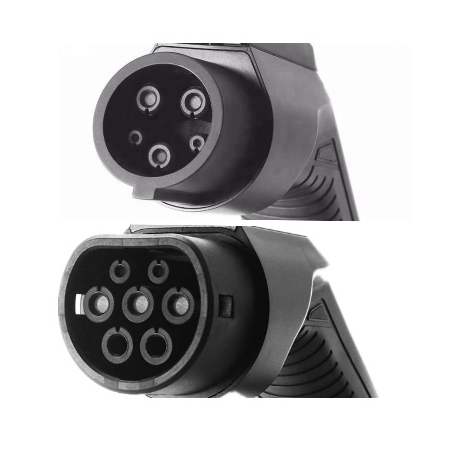Whether you already own an electric vehicle (EV) or are looking to purchase one in the near future, the biggest topic of concern for most drivers comes down to where charging will occur and how much it will cost.
Despite having an environmentally friendly vehicle that cuts reliance on gasoline, using a Level 1 home charger is not reliable or convenient for most EV drivers. Instead, having a faster, Level 2 charging station can reduce range anxiety and calm logistical fears, as you become less reliant on charging on the go.
But what exactly is a Level 2 car charger and why does it present better value than its Level 1 counterpart?
Types of EV Charging Connectors: What is Level 2 Charging?
Vehicle owners are often supplied with Level 1 chargers from automobile manufacturers at the time of purchase to use at home with 120v standard outlets. However, upgrading to a Level 2 EV charger is a good and practical investment. A Level 2 charger is like having your own gas pump in your garage, but it is a smart appliance that charges your vehicle. An added convenience: not only is a Level 2 car charger ready when you need it to be, you can save on electricity by charging during lower rate times.
A Level 2 EV charging station delivers an electrical current from an outlet or hardwired unit to the vehicle via the connector, similar to a standard-issue charger. Level 2 car chargers use a 208-240v power source and a dedicated circuit — potentially up to 60 amps. However, 32 amp charging stations like the NobiCharge EVSE Home Smart EV Charger offer more flexibility and potential costs saving by requiring a lower 40 amp circuit.
A Level 1 will deliver around 1.2 kW to the vehicle, while a Level 2 charger ranges from 6.2 to 19.2 kW, with most chargers around 7.6 kW.
Post time: Apr-13-2023











